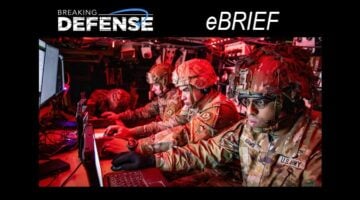
WASHINGTON: With the Taliban reeling, it is the Afghan government’s own corruption that is the biggest threat to US goals and the biggest reason to keep US advisors in place through 2014 and beyond. That’s the verdict of Marine Maj. Gen. John Toolan, who just finished a year commanding the international force called Regional Command Southwest, responsible for both Nimruz province and the former Taliban stronghold of Helmand.
“If we want to lose everything we’ve gained, then if we allow corruption to take root, it’ll come crashing in,” said Toolan, speaking at the Atlantic Council of the United States. Today, the Taliban are “completely on their back” in southern Helmand, “on their knees” in the center of the province, and “on their heels” in the north, Toolan argued. “Three years ago, before the surge,” Toolan said, “the Taliban ran the local communities.” Today they have to sneak across the border from Pakistan. “They’re now the visiting team,” said Toolan. “We are the home team.”
“But if the Afghan security forces are allowed to prey on the public,” Toolan warned, “we will lose [that] home team advantage…and this is why it’s so important that we maintain the advisor-trainer role through 2014.” The number of Marines in Regional Command Southwest is dropping from 17,500 today to 7,000, Toolan noted, although the British contingent there will remain at about 8,500; he’s hoping for no further force reductions in the southwest or Afghanistan-wide before 2014, he told reporters, but that’s a decision yet to be made.
Toolan does not expect the Afghan army and police to be self-sufficient by 2014, when US and coalition “combat forces” are supposed to draw down to a merely “advisory” presence, though the difference between the two types of presence is deliberately left vague. “Although 2014 looms out there as being the end of the counterinsurgency,” said Toolan, “there will be things left after 2014 that will continue to support the Afghan security forces.” The Afghans have tough infantry and excellent human intelligence, but they lack a host of technical capabilities, from unmanned drones to artillery to medical support, that the US or other technologically sophisticated foreigners will need to provide for years to come after 2014. The Afghan National Police in particular need training in the basics of criminal investigation and the rule of law, so they can move from a merely paramilitary security force to actual law enforcement.
“The police are still working through a history of corruption,” admitted Toolan. “The local people, still, they’re a little hesitant, so the army’s playing a pretty strong role” in day-to-day policing. In the long term, though, the hope is to move the Afghan Army out of the populated areas and leave everyday security to the police. Today, “we dabble in criminal investigation and evidence collection,” said Toolan. “We have to stop dabbling and bring in the experts” from First World law enforcement agencies to train the Afghans, “very similar to what we did in Bosnia.”
Crooked cops are hardly Afghanistan’s only corruption problem, Toolan acknowledged, citing one Afghan national legislator by name as a drug lord who uses his influence to get relatives appointed to local government posts. The fundamental problem, is that “[even] in the districts and local levels where there are elections,” Toolan lamented, “the central government still doesn’t trust the local leadership; they want to appoint their own people,” a practice ripe for abuse. “What we really need to do is stop the central government’s meddling in the local politics,” he said. “The only way you’re going to make a difference in Afghanistan is to allow the local districts and provinces to control their own fate.”
Toolan’s belief that the future of Afghanistan should be built from the bottom up reflects a profound faith in the local Afghan leaders, soldiers, and cops he and his Marines have fought alongside. “In Helmand province,” he said, “the casualties for US forces have dropped dramatically, but the casualties on the Afghan side have increased dramatically. It shows the fact that, yes, the Afghans are now in the lead in many of the districts.”

The questions that warfighters ask the most are now answered with data analytics
CDAO’s Advana data analytics platform is ingesting data from about 500 DoD business systems.
So despite all the problems of corruption and the highly publicized incidents of Afghan troops turning their guns on Americans and other foreign forces, “for every insider threat issue I can tell you there are a hundred events that have created a strong bond,” Toolan said. “You would be amazed at the wonderful, strong relationships that everyone from PFC [private first class] up to colonel has built with the Afghan security forces. When I left, I would have thought I was leaving my family.”